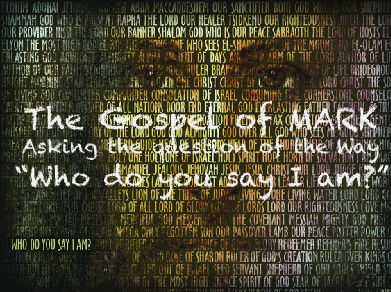Jesus lived in a day and age when there was great civil unrest. The Romans were the latest, and the greatest, to conquer and control the land of Israel. A land that lays between the great powers of Egypt and Assyria and Mediterranean dominated by Greek culture and Roman military might. For a people trapped in a promised land, at the crossroads of these great powers, where they repeatedly did their “war games,” they were inhabited by the question of when God would deliver them and bring about God’s victorious community of peace, a great feast and harvest for all in Isaiah 2; Isaiah 25 and Micah 4. The religious leaders of Israel had difference responses to this existential challenge, cultural threat and political impasse. Some advocated collaboration, others revolution, others rebellion. Strategies were both to use violent rebellion and non-violent resistance
In Mark 11, Jesus enters into a triumph parade into Jerusalem, acclaimed by followers as the One that God had sent to being justice, peace and well-being. The religious leaders are threatened by Jesus and jealous of his popular support. In the first section of today’s passage Jesus tells a parable. It invokes the established metaphor of Israel as a vineyard and God as the owner from Isaiah 5. As the people await God’s deliverance from the problems of their world, Jesus insinuates that the religious authorities have been badly treating the people of God, as the tenant farmers abuse the owner of the vineyard. They lack relationship, a sense of mutual interdependence, a recognition of who is in charge: sovereign. The tenant farmers know better than the owner of the vineyard. They deem their will to be better than the owner. They know better. They know all. They report to no one but themselves. And they’re indignant that Jesus has the nerve to challenge their authority.
The second section of the text tells of the hypocritical, and possibly hysterical, interaction between Pharisees and Herodians (who disagreed about how to interact with Rome) and Jesus. The first resisted Rome, wanting to remain apart, unblemished, uncontaminated: pure for Adonai. The second embraced Roman power, and supported it: seeing collaboration as the only way forward. They seek to trap Jesus in a ruse to make him speak publically against Rome, committing sedition for which the punishment was death. Jesus offers them a way between collaboration and rebellion, non-violent resistance that affirms the reality of the day without undermining the sovereignty of Adonai who alone is Lord.
We too face a challenge in our contemporary society, pushed by technology towards constant production, pseudo-social media-relationships, and fear pushing us to deny the humanity of our brothers & sisters. What is our third way forward, between collaboration & contamination.
Questions for Going Deeper:
- What do you think is the message of these scriptures?
- How have you experienced it as truth in your life?
- What invitation do you hear from God in this text to act, say, be or do?
